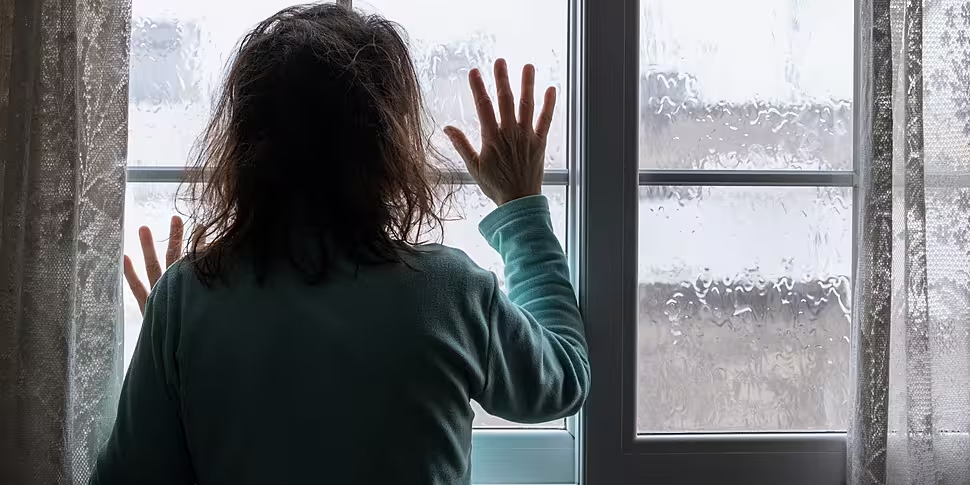A woman living with bipolar disorder has described it as like 'being in a washing machine'.
It is estimated that 1% to 2% of people experience a lifetime prevalence of bipolar disorder in Ireland.
The condition, which causes unusual shifts in mood, is said to affect up to 40 million people worldwide.
Bernadette told Lunchtime Live she diagnosed quite late in life at 47.
"Looking back on my life before that it was quite balanced," she said.
"I went to college, went overseas, did a masters and all the rest.
"Then it was kind of in the 2000s I started to experience more personal stress and trauma in my life.
"My dad passed, my mum had a terminal diagnosis and she actually passed six weeks before our wedding.
"Afterwards I started to notice a lot of stress [and] just not being able to cope with things - I just couldn't think straight".
'I was pretty hyper'
Bernadette was put on antidepressants which she said didn't help.
"I started seeing a physcologist in John of Gods in 2016," she said.
"My mood had changed, it was around Christmas time and my husband and friends were like, 'Is she OK?'
"I was pretty hyper".
Bernadette said she had Christmas FM "blaring in every room in the house".
Her husband then went with Bernadette to her next psychologist appointment at which point bipolar was mentioned.
"I saw a psychiatrist for most of the following year, [I was] on mood stabilisers" she said.
"My moods were still going up but they were balancing out - then by October I had to just step out of work.
"It was like being in a washing machine, I just couldn't think straight at all".
'Very hard to diagnose'
Bernadette said she had signed up for positivity courses like yoga, cycling, acupuncture and hypnotherapy.
Her doctor then suggested that she be admitted to a psychiatric hospital.
"It's a very hard thing to diagnose and this is one of the biggest problems," she said.
"A lot of what I've said people say, 'I actually feel quite low, I can't think straight'.
"It's a very difficult one because then when your mood lifts, who goes to the doctor to say 'I'm in great form'?"
Bernadette said she was off medication and her behaviour was observed in the hospital.
"I think within three weeks they made a diagnosis; but most people aren't in a hospital being observed," she said.
"People suffer for many, many years before they actually get the diagnosis".
Bernadette said she was "quite relieved" following her diagnosis and subsequently found out the condition runs in her family.
'Excess talking'
Liam told the show he went through severe depressive episodes from his teenage years for 10 years.
"There was nothing going on in my life externally that warranted these low moods," he said.
"Eventually in 2009 I attended my GP but I only ever attended him for the first few years [feeling] depressed, so he treated me accordingly with the antidepressants.
"It's so difficult to get the diagnosis.
"I'm bipolar type 2 so my hypermania it wasn't as evident as they'd show or as dramatic [as it is portrayed] on TV shows.
"Mine was just excess talking, spending a lot of money, no need for sleep, a huge amount of energy."
'Rough lessons'
Liam said his diagnosis was unchecked until he went to his doctor for a physical issue.
"I eventually got my diagnosis in 2013," he said.
"The mood stabiliser medication I take has worked very well the last six years.
"There was a couple of rough lessons along the way; I came off medication [and] got very ill after coming off it.
"I'm lucky though, not everyone has their bipolar under control - it's quite individual and specific.
"For me I could have nine months depressed, five months hypermania," he added.
Liam said he felt stigmatised believing he was "the only bipolar person in Ballyhaunis".
World Bipolar Day is celebrated each year on March 30th.
Listen back here:
Anyone affected by issues raised in this article can call Aware on 1800 80 48 48. More information can be found here









